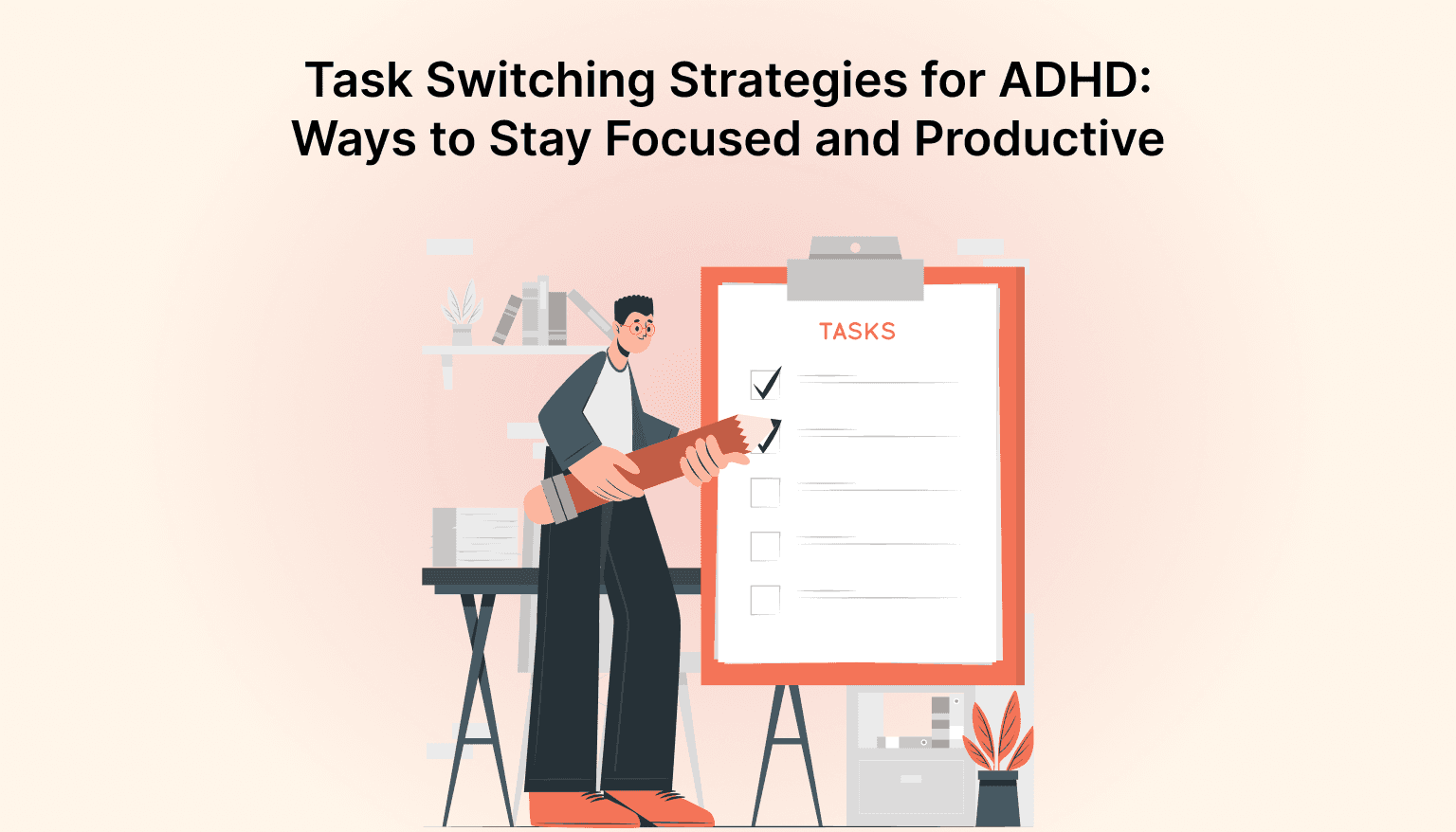10 Key Organizational Skills to Grow Your Career
11
Most professionals begin their day with purpose, but end up battling distractions and disorganization. According to a report, only 21% of employees worldwide are fully engaged, costing the global economy over US$438 billion annually.
The issue is not effort but scattered systems that waste time and focus. Developing strong organizational skills helps bring structure, clarity, and consistency to daily work.
This guide highlights 10 essential organizational skills to help you manage organizational tasks efficiently, maintain focus, and achieve measurable progress in your professional goals.
Key Takeaways
Organizational Skills Go Beyond Tidiness: They involve structured systems for managing time, information, and commitments, not just keeping a clean workspace.
Strong Organization Increases Career Reliability: Well-organized professionals are trusted with larger responsibilities because they manage priorities and deliver consistent results.
Time-Blocking and Task Triage Drive Focus: Scheduling work based on impact and urgency prevents overload and helps you act on what matters most.
Regular Reviews Prevent Workflow Drift: A brief weekly review of completed and pending tasks keeps your systems accurate and your schedule realistic.
Tools like Akiflow Turn Skills into Habits: Centralizing tasks, calendar, and communication in one system turns organizational skills into repeatable, stress-free routines.
What Are Organizational Skills?
Organizational skills refer to the capabilities and habits that enable you to manage time, information, and tasks in a structured way. They go beyond keeping your workspace tidy; these skills help you set up workflows, steer your calendar and commitments, and keep track of work in motion. Think of them as the systems behind your productivity, not just the snapshot of what your desk looks like.
When you master organizational skills, you reduce the friction of having tasks and commitments spread across many apps and tools. You stop chasing what needs to be done, and instead, you see what needs doing and act on it.
Why Effective Organization Matters
Modern work presents more demands and distractions than ever before, including multiple chat tools, emails, client requests, meetings, and shifting priorities. According to recent research, planning, goal-setting, prioritization, and task organization emerge as especially beneficial for productivity, well-being, and performance.
Here are key reasons why honing your organizational skills is vital:
You spend less time figuring out what to do and more time doing it.
Fewer calendar conflicts and fewer tasks slipping through the cracks.
Clearer prioritization means higher-impact work gets attention, not just the most urgent.
Better tracking of organizational tasks leads to stronger reliability and professional reputation.
Well-organized people are often ready for leadership or larger roles because they manage more variables and deliver consistent results.
By giving structure to your work, you turn chaos into a predictable flow, and that shift often marks the difference between being reactive and being in control.
Ready to bring structure and focus to your workflow? Check out our guide on 7 Organizational and Concentration Tools for ADHD/ADD Adults
Types of Organizational Skills
Understanding high-level categories helps you see which area to focus on when things feel messy. Here are four types, with what each covers:
Category | Core Focus | Example of Organizational Task |
Time Management | Scheduling, prioritization | Blocking two hours each morning for high-impact work |
Task Management | Tracking progress, dependencies | Creating a checklist for a multi-step project |
Information Management | Organizing data, files, and comms | Labeling folders, archiving old chats |
Team/Project Organization | Coordination, handoffs | Assigning owners and deadlines to tasks, updating the team on the status |
Each of these types intersects with “organizational tasks” in your day-to-day work: from deciding which tasks to do, to making sure those tasks don’t get lost in email or meetings. Recognizing where your weakest link is means you can direct your efforts for the biggest gain.
10 Key Organizational Skills Examples for Career Growth
Below are actionable skills you can develop today, each tied to tangible benefits in your career progression and execution of organizational tasks:

Task Triage and Prioritization
Strong organization starts with knowing what deserves your attention first. Not all tasks carry the same weight; learning to evaluate urgency and impact helps you direct energy where it counts most.
Create a clear rubric. Label every task as High Impact, Medium, or Low, and use it to guide your schedule. For example, fixing a client issue may outrank reviewing a presentation.
Avoid the “urgent trap.” Just because something pings your inbox doesn’t mean it’s a priority. Pause before reacting. Could it wait until after your deep-work block?
Re-prioritize daily. Each morning, choose three must-do tasks for the day and block time for them first; everything else is secondary.
Time-Blocking
Time-blocking is about assigning every task a place in your calendar. It turns abstract to-dos into visible commitments, protecting space for deep work.
Convert tasks into time, instead of “Work on proposal,” schedule 10:00–11:30 AM – Draft proposal intro.
Add breathing space. Insert 10-minute buffers between meetings to reset and prep for the next session.
Protect high-focus hours. Treat your time blocks like client meetings, no multitasking, no rescheduling unless absolutely needed.
Task Batching
Grouping similar organizational tasks together reduces context switching and mental fatigue, especially when you juggle multiple communication tools.
Batch by energy level. Handle creative work in the morning and admin tasks later when your energy dips.
Create theme blocks. For instance, dedicate Mondays to planning, Tuesdays to client work, and Fridays to reporting.
Reduce switching costs. Instead of checking email 20 times a day, batch responses twice, once before lunch and once before sign-off.
Inbox and File Hygiene
A cluttered inbox or file system drains focus. Good organizational skills include regular digital cleanup to make retrieval effortless.
Adopt the “one-touch rule.” When you open an email, either respond, schedule, delegate, or archive it; don’t leave it lingering.
Label and archive weekly. Create simple folder names like “Clients,” “Internal,” or “Finance” for quick navigation.
Apply the 3-month rule. If a file hasn’t been touched in 90 days, move it to long-term storage or delete it if obsolete.
Workflow Documentation
Documenting how recurring tasks are handled prevents errors, saves time, and helps others follow the same process.
Keep it simple. Write down the key steps for repetitive tasks, e.g., “Monthly invoice review” checklist.
Store centrally. Keep all workflow guides in one accessible folder or tool so your team doesn’t waste time searching.
Update regularly. After each cycle, note what worked or failed to refine the process next time.
Delegation Clarity
Delegation works only when ownership and expectations are clear. Vague hand-offs are a common source of project delays.
Assign by skill and capacity. Match the right person to the right task, e.g., give report formatting to the person best at data visualization.
Set timelines upfront. Replace “ASAP” with a real date and time. It prevents misunderstandings and builds accountability.
Use shared trackers. Keep delegated tasks visible in one dashboard so nothing is forgotten.
Routine Review
A regular check-in with your systems keeps them sharp. Without reviews, even the best organizational habits start slipping.
End-of-week reflection. Spend 15 minutes every Friday noting completed tasks and what slipped.
Ask three questions. “What did I finish?” “What’s pending?” “What needs re-prioritizing?”
Reset for next week. Use what you learned to schedule next week’s top three priorities before logging off.
Digital Workspace Discipline
Too many tabs, tools, and notifications create silent chaos. Digital discipline is about designing a workspace that supports focus.
Limit your tools. If you use five apps to manage tasks, consolidate to one, for example, use Akiflow to integrate them.
Adopt a “clean-desk” rule digitally. Close unused browser tabs and mute irrelevant notifications during focus time.
Set a shutdown routine. Spend 10 minutes before sign-off organizing files and clearing your desktop.
Project Roadmapping
Big goals often stall because they’re too broad. Roadmapping breaks them into clear steps and timelines.
Visualize milestones. Turn “Launch new feature” into smaller checkpoints like “Design complete,” “Testing done,” and “Launch prep.”
Assign timelines. Place each milestone on your calendar; visible progress drives momentum.
Review dependencies. Identify which tasks rely on others so you can prevent bottlenecks before they occur.
Follow-Up Tracking
Following up is a subtle but powerful sign of strong organizational skills. It shows reliability and keeps projects on schedule.
Maintain a follow-up list. Record every task you’ve delegated or are waiting on with a reminder date.
Use status tags. Label items as Waiting, In Progress, or Completed to track progress quickly.
Close the loop. After completion, send a quick acknowledgment, e.g., “Thanks for updating the deck; I’ve added it to the final review.”
Working consistently with these skills helps you move from “reacting to tasks” to “managing tasks proactively.” Each reinforces your capacity to handle more complex work while maintaining clarity.
Want to lead with clarity and calm while working remotely? Read How to Be Organized as a Remote Leader.
How to Apply Organizational Skills at Work
Here are steps you can take right now to embed organizational skills into your workflow and convert them into organizational tasks that matter:

Consolidate your task sources. Identify where your tasks currently live (email, Slack, project tool, calendar) and move them into a unified view.
Set your time blocks first. Before filling your day with meetings, block time for your top tasks and guard those blocks as you would a meeting.
Add transition buffers. After each meeting or big task, schedule 5 minutes to switch context and check any new organizational tasks that have emerged.
Use templates for recurring work. If you run a weekly status update or project check-in, build a reusable checklist or template so you don’t recreate the process each time.
Assign owners for shared tasks. When a collaborative task arises, define who is responsible, when it’s due, and how you’ll check on progress.
Review your workflow daily. At the end of the day, glance at what moved, what changed, and prep the top 3 tasks for tomorrow’s time block.
When you apply organizational skills this way, you turn your calendar, tools, inboxes, and task lists into assets rather than sources of overwhelm.
How Akiflow Helps You Stay Organized
Effective organization isn’t about juggling more tools; it’s about bringing clarity and structure into one flow. Akiflow helps you turn great organizational habits into a sustainable daily system. With your tasks, calendars, and AI assistant all in one place, it keeps you focused on what truly matters.
Here’s how Akiflow keeps everything organized:
Unified Task & Calendar Hub: Bring all your tasks, meetings, and priorities into one visual calendar that syncs work and personal life smoothly.
AI-Powered Time-Blocking: Automatically convert to-dos into calendar blocks with smart suggestions that protect deep-work time.
Universal Inbox & Integrations: Capture tasks from Slack, email, Notion, and more, so every idea and request lands in one clear dashboard.
Smart Scheduling & Conflict Detection: Avoid overlaps and hidden commitments as Akiflow intelligently adjusts your schedule in real time.
Focus Mode & AI Nudges: Reduce distractions, stay goal-aligned, and let Akiflow’s AI gently guide your next actions.
Built for Doers: Designed in Italy and backed by Y Combinator, Akiflow powers founders, operators, and teams at Figma, Framer, Linear, and Superhuman.
How to Improve Your Organizational Skills
Improvement happens when you systematically assess your workflow and refine your systems. Here’s a four-step approach to raising your organizational game:

Audit: Spend one hour listing all your current organizational tasks and where each lives (tool, inbox, calenAutomatedar).
Simplify: Pick one tool or place, move all tasks there, and remove duplicates or unused lists.
Automate: Identify one repetitive organizational task and turn it into a template, rule, or recurring event.
Review: Block 30 minutes each Friday to look back: Were tasks completed? Did time-blocks serve you? What needs adjustment?
Use measurable indicators to assess progress: number of overdue tasks, count of unscheduled tasks, and number of calendar collisions. Over a month, you should observe fewer missed items and clearer task-to-time alignment.
Quick 7-Day Implementation Plan
Use this mini-challenge as a fast track to improved organization:
Day | Focus | Action |
1 | Audit | List all active organizational tasks and tools |
2 | Consolidate | Choose one central system and move tasks there |
3 | Time-Block Pilot | Block two major tasks tomorrow on your calendar |
4 | Template Creation | Build a recurring checklist (e.g., weekly review) |
5 | Automate | Set one recurring task or rule for next week |
6 | Review | Use your new template for a “what went well” / “what changed” check |
7 | Measure | Look at your indicators, how many tasks were late, calendar conflicts, etc. |
Completing this plan gives you a practical foundation. After that, you can refine, expand, or delegate more confidently.
Common Pitfalls and Corrective Steps
Working on your organizational skills means spotting what blocks you. Here are frequent stumbling blocks and how to fix them:
Pitfall | What Happens | Quick Fix |
Too many tools | Tasks are scattered and duplicated | Pick one system and commit to it |
Over-planning without execution | Systems become busywork, not action | Limit planning to 10-15 minutes/day |
Skipping reviews | Small misses accumulate into big issues | Schedule and protect weekly review time |
No calendar discipline | Time for tasks gets eaten by meetings | Block work-time first, then schedule meetings |
Unclear ownership | Tasks linger, no one follows up | Assign names + deadlines + check-in points |
Conclusion
Building organizational skills is less about adding new tools and more about maintaining discipline in how you manage your time and attention. The professionals who rise fastest are often those who structure their workday deliberately, review progress consistently, and rely on systems that reduce mental clutter.
When an organization becomes routine rather than effort, productivity follows naturally.
The key is sustaining clarity even as responsibilities expand, and that is where the right tool can make all the difference.
Akiflow helps maintain that structure effortlessly. It unifies calendars, tasks, and communication into one organized flow, so planning and execution stay connected. With features like AI-powered scheduling, time-blocking, and focus mode, it turns daily organization into a repeatable, stress-free habit.
Try Akiflow for free and experience how structured time, centralized tasks, and clarity at work can redefine your productivity.
FAQs About Organizational Skills
What are good examples of organizational tasks at work?
Examples include scheduling your day in advance, maintaining a single to-do system, reviewing your task list weekly, and cleaning your inbox or file system each day.
How can I become more organized if I work remotely?
Ensure your workspace (digital and physical) is tidy, set clear time-blocks for deep work, centralize tasks across chat and email, and communicate status explicitly with your team.
What’s one habit that instantly improves organization?
End each day by picking your top 3 tasks for tomorrow and placing them into calendar slots. This simple shift transforms loose task lists into scheduled work.
How do tools like Akiflow help with organization?
Such tools bring your multiple task sources into one place, connect with your calendar for time-blocking, and give you visibility to track, schedule, and complete organizational tasks more reliably.
How can organizational skills support career growth?
Strong organizational skills help you manage priorities, meet deadlines consistently, and reduce decision fatigue. Over time, this reliability builds trust with colleagues and leaders, positioning you for greater ownership and advancement opportunities.




